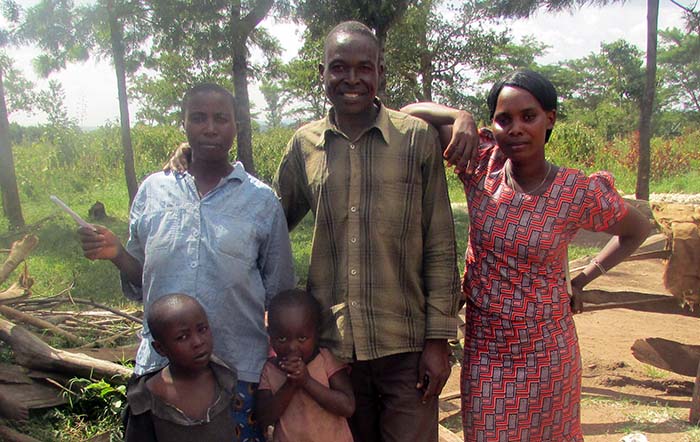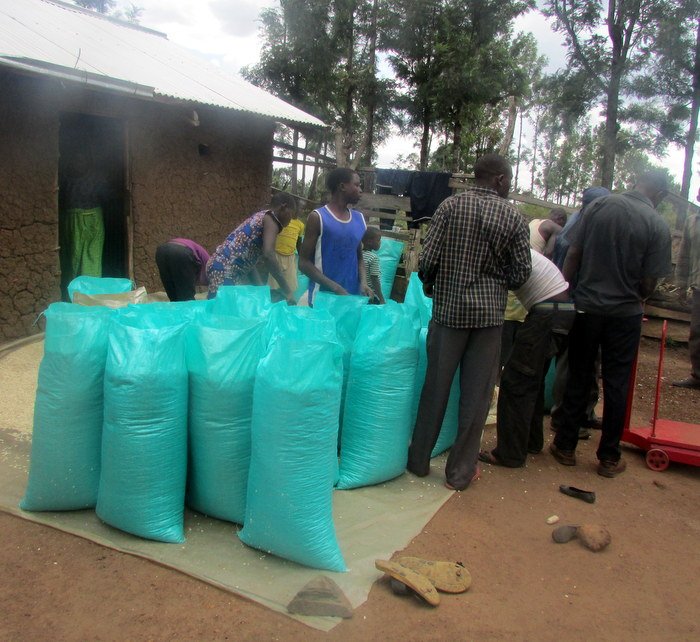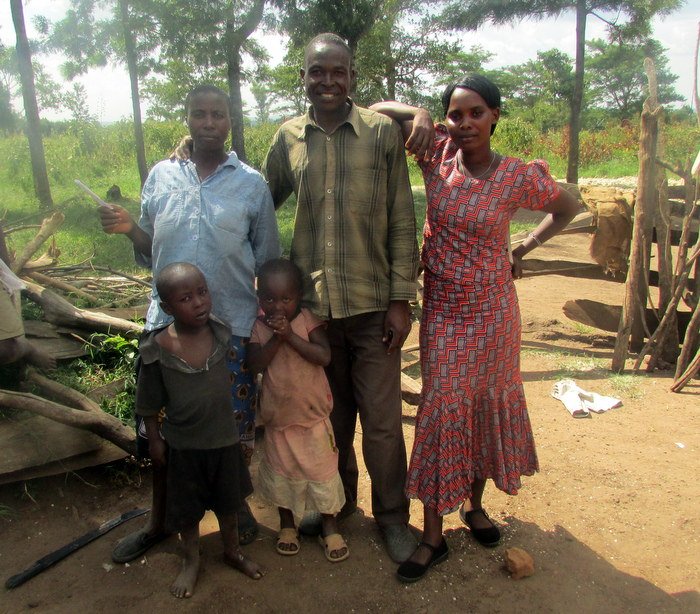In the 2015 long rains harvest season, Nuru Kenya piloted an approach of linking farmers to reliable markets where they can commercialize their crops. By aggregating and selling farmers’ surplus produce, Nuru Kenya helps farmers optimize their earning potential and make the most of their crop yields.
Market linkage activities involve a number of steps from the initial purchase from farmers, transport and aggregation, and the ultimate resale of grain. This photo series, from Kiomakebe and Komomange sub-locations in Migori County, Kenya, depicts just a few of the steps that farmers experienced as they took their grain to a Nuru Kenya purchase point.
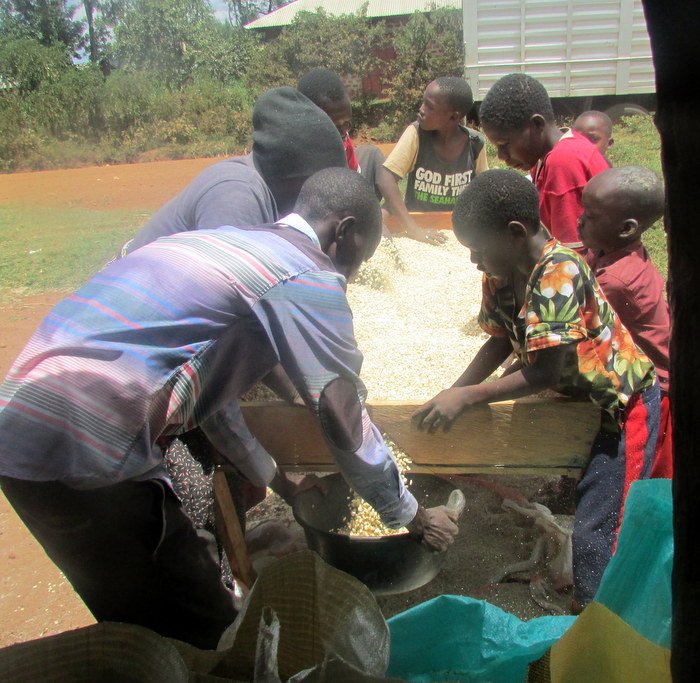
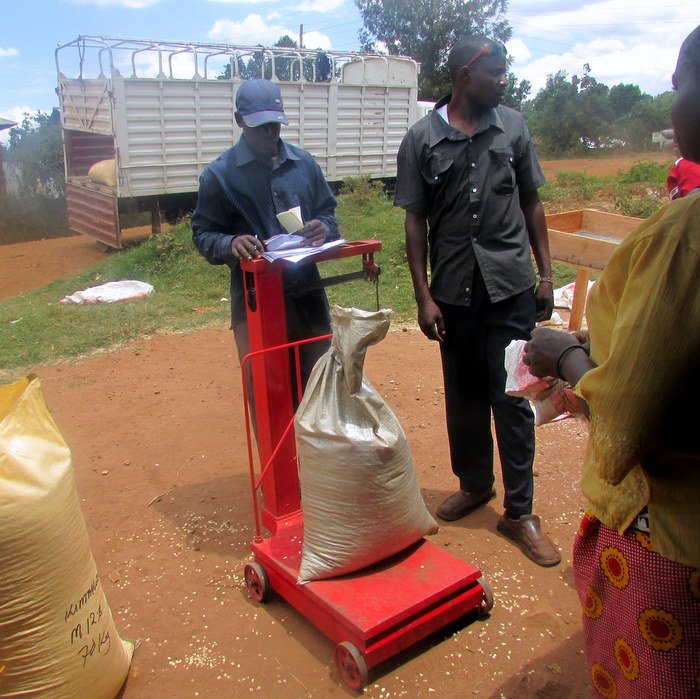
Nuru Kenya’s clerk weighs the maize and offers the farmer a fair price. For the first time, Nuru Kenya farmers were afforded the option to receive payment through a mobile money platform. This smart technology solution enhances efficiency, security and transparency, as no one is handling cash. Mobile money transactions can be managed by a farmer’s basic cell phone.
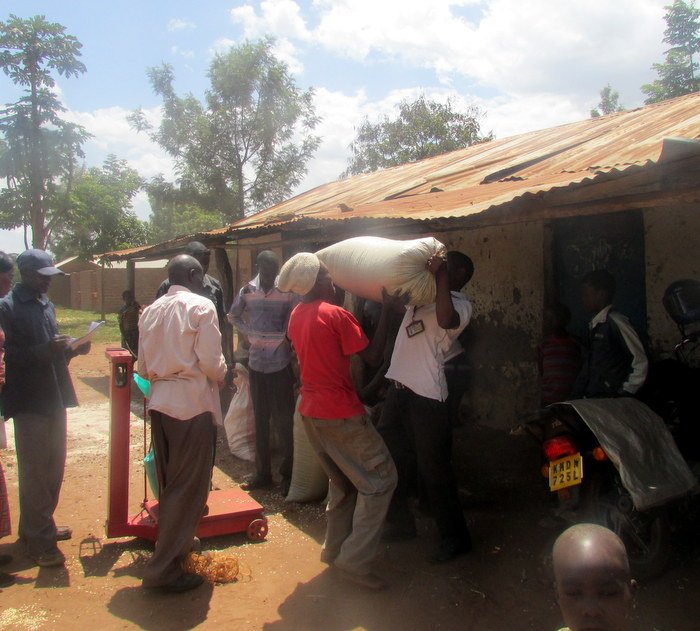
The maize is moved to where it can be placed into a clean bag. Nuru Kenya’s dedicated staff perform the heavy lifting, hand in hand with the community.


